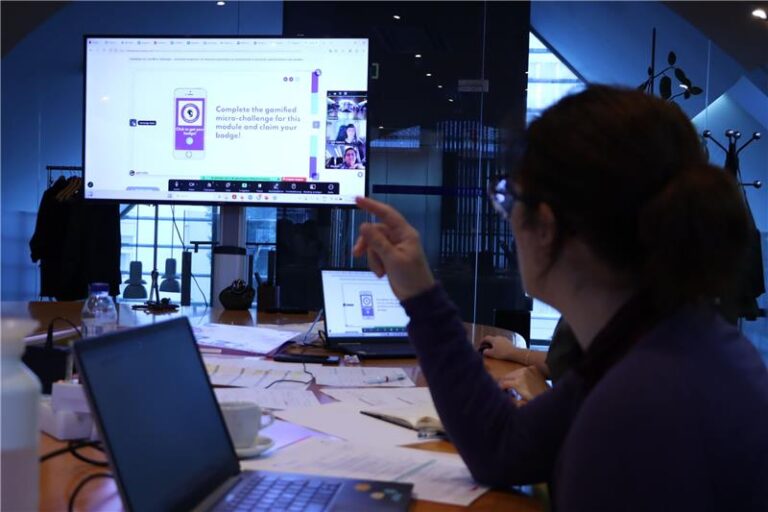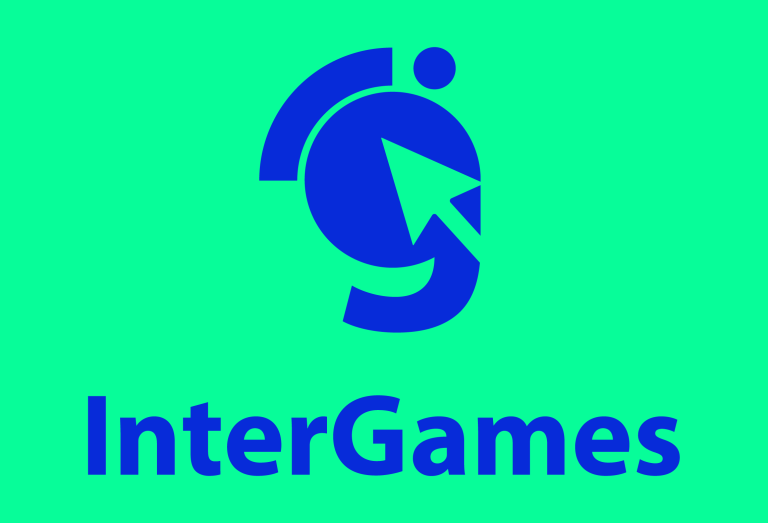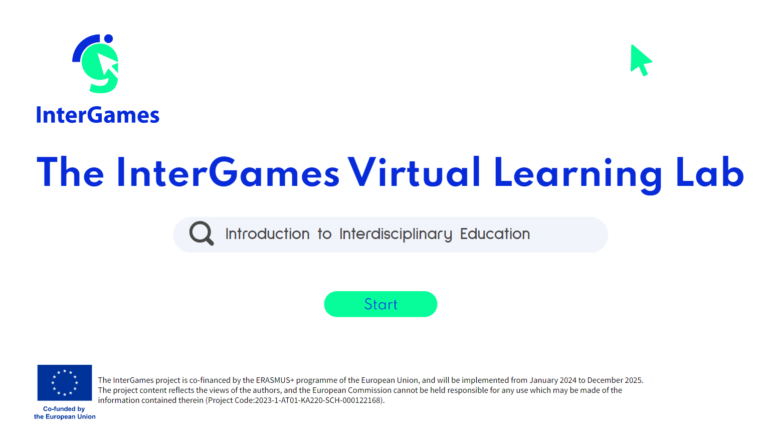
InterGames Progress Updates:
As the InterGames project has now reached its first six months, the consortium has been hard at work delivering high quality content and conducting research necessary in order to fulfil our mission.
The creation of the Virtual Learning Lab (VLL) that would provide training to educators and learners alike to implement interdisciplinary teaching methods in the education sector is now in its late stages. As part of this task, the consortium first conducted comprehensive desk research on the current state of interdisciplinary learning in secondary schools in Austria, Romania, Italy, Cyprus, and Spain, where they identified various gaps and potential problems that the InterGames project could help alleviate. The separate research papers were then combined into a Common report that would serve as a main navigating point in the consortium’s future work and tasks.
Key findings from each country:
Austria:
- Austria values interdisciplinarity, particularly in Environmental Sciences and Economics. Although the curricula reference the importance of interdisciplinary connections, there is often a lack of specific guidelines and practical examples for teachers to follow.
Romania:
- In Romania, however, the rigidity of the curriculum and insufficient teacher training are significant barriers. Recent reforms aimed at increasing school autonomy and local authority involvement but have not yet fully addressed these challenges.
Italy:
- Italy is committed to integrating interdisciplinary approaches, especially in subjects like Civic Education and History. However, while the theoretical framework is strong, practical implementation varies significantly. There is a clear gap in providing teachers with concrete guidance on how to effectively apply interdisciplinary methods in the classroom, which hinders the realization of these educational goals.
Cyprus:
- In Cyprus, there is a notable absence of explicit references to interdisciplinarity in official educational documents. While the curriculum aims to promote global citizenship and horizontal competencies, the lack of focus on interdisciplinary approaches indicates a potential oversight.
Spain:
- The Spanish education system, on the other hand, actively encourages students to make connections between various disciplines, promoting a comprehensive understanding of complex societal issues. However, continuous efforts are needed to ensure that theoretical frameworks are effectively translated into practice.
While it is true that interdisciplinary education holds the promise of nurturing pupils capable of critical thinking and problem-solving across various contexts, the next step for these countries is to move from theoretical acknowledgement to practical application, ensuring that students are well-prepared for the demands of the modern world. To do that, InterGames intends to develop Virtual Learning Labs that are tailored to the gaps identified in each report, corresponding to the needs of each country to enhance the interdisciplinarity in the secondary school curricula.
Stay up to date with our work progress by following the InterGames website and social media accounts (Facebook, Instagram, LinkedIn), updated frequently.




Interesting approach 🙂